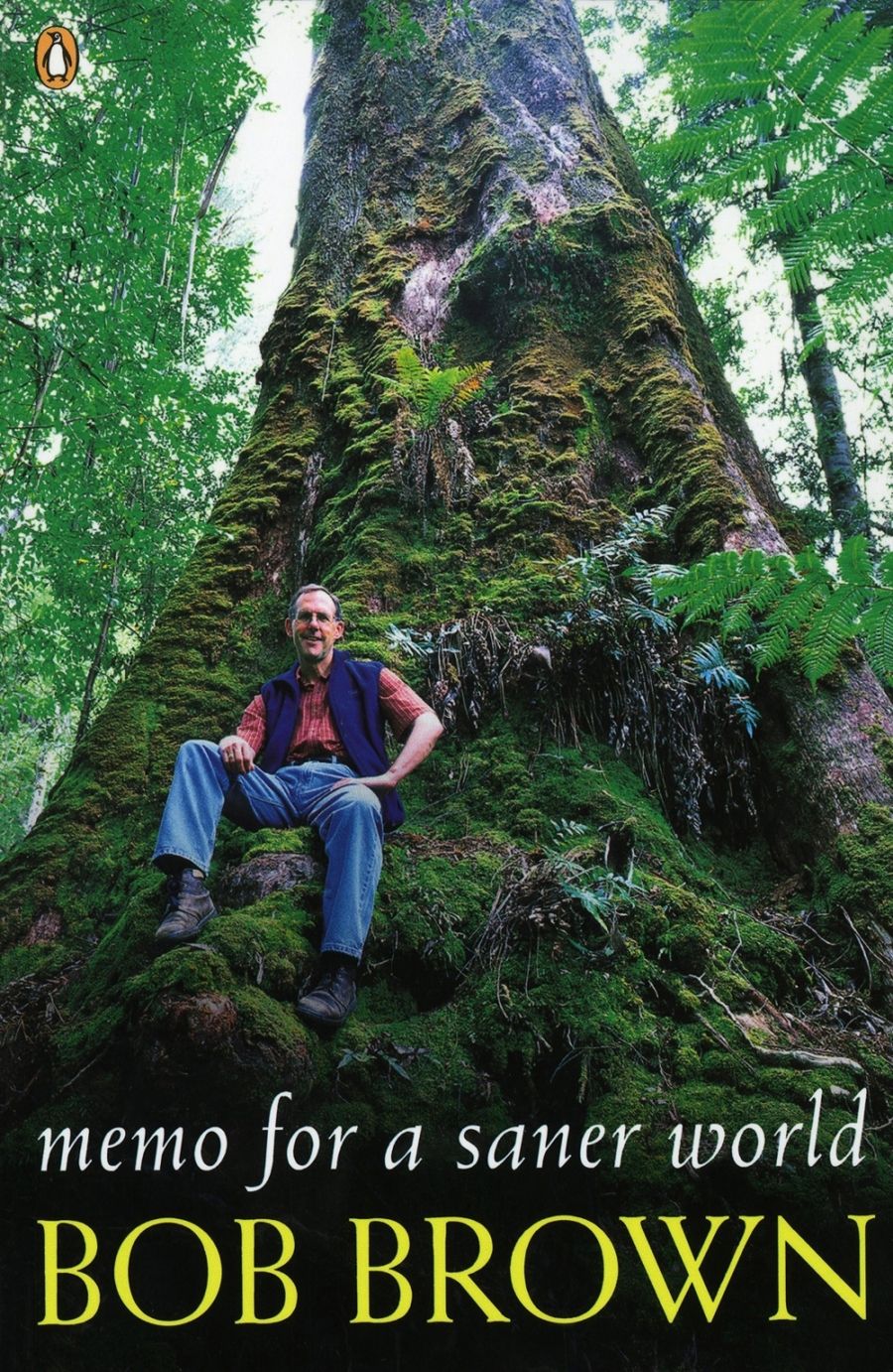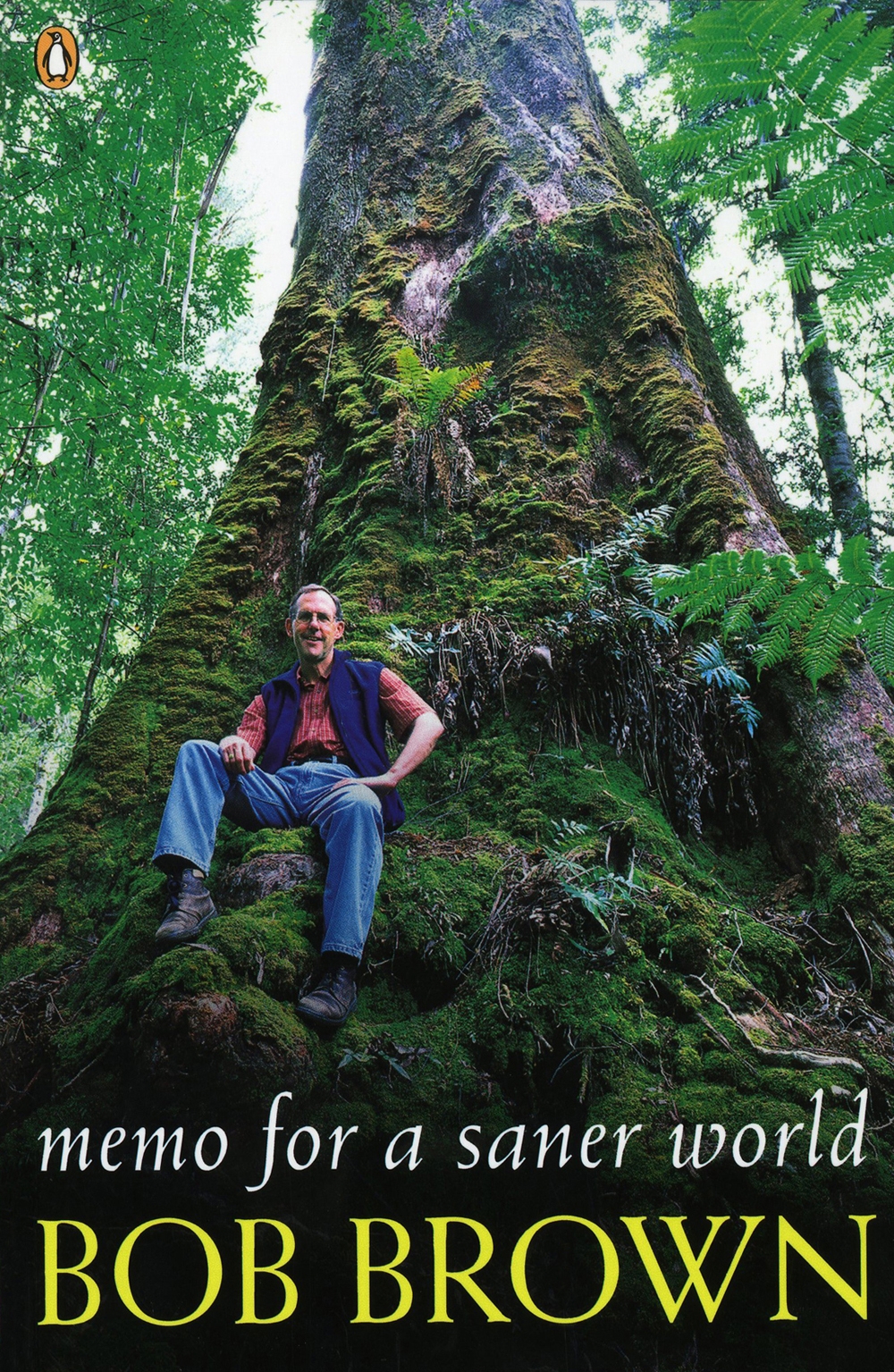
- Free Article: No
- Contents Category: Biography
- Custom Article Title: Thin Green Line
- Review Article: Yes
- Article Title: Thin Green Line
- Online Only: No
- Custom Highlight Text:
Bob Brown tells us the worst: ‘Half of the planet’s forest and woodlands are already gone’; every year, forest areas twice the size of Tasmania vanish from the map. At the same time, ‘There is a thin green line round the world’ – more than seventy Green parties contend for votes everywhere from Scotland to Mexico, Mongolia to Kenya. Jacques Chirac is trying to change the French constitution in favour of the environment; Les Verts have been doing pretty well in the European elections. Labor lassoes Peter Garrett. Even John Howard, while giving much aid and comfort to the fossil fuel industries, tries to sound as though he really supports renewable resources.
- Book 1 Title: Memo for a Saner World
- Book 1 Biblio: Penguin, $24.95 pb, 281 pp
- Book 1 Cover Small (400 x 600):

- Book 1 Cover (800 x 1200):

Bob Hawke, Paul Keating and then Howard all turned down Brown’s invitations to tour the Styx; when Mark Latham accepted late in 2003, Brown says, ‘he broke the mould of studied ignorance’. After last year’s massive public protests and the world’s highest tree-sit, jointly organised by Greenpeace and the Wilderness Society, Brown is upbeat; but the Styx hasn’t yet been saved.
Nor have the wonderful Saemangeum tidal flats in South Korea, a vast feeding and resting area for millions of migrating birds on their annual global migrations, a major hub for the bird life of the planet. Brown, who went there in 2002, tells how the flats will soon be closed off by the world’s biggest sea dyke, a project of Hyundai Engineering and Construction; the wetlands will be filled to make industrial sites. This is happening in the teeth of national and international protest. Buddhist religious leaders have walked from Seoul to Saemangeum, bowing at each three paces, to protest against the ‘development’; there have been mass bicycle rides round the country, day and night sit-ins in Seoul. Brown and his colleagues have written, unavailingly, to our national leaders and to Korea’s; he says: ‘When I think Hyundai, I think dead birds.’
Polls show that in Korea, as in Tasmania, most people – more than four-fifths of the population – oppose what’s being done. Both stories yield grim lessons about political and economic power. Brown gives the figures on economic gain to the Tasmanian west coast from the continued freedom of the Gordon and Franklin rivers, with 100,000 visitors coming into Strahan every year; he calls on tourism figures from the Daintree and the Barrier Reef for additional evidence. He wants environmental damage to be charged to the developers’ accounts, and argues that revenue from a carbon tax of $25 per tonne would fund solar hot water for every house in the country, and cover free tertiary education as well.
If those economic arguments had been developed further, and mapped at the beginning of the book, the opposition might have to take some notice. But Brown’s opening chapter, ‘Earth Spirit’, is so much misty moralism: ‘How does modern society break the addiction that is leading to this destruction? It is hooked on goods, tantalised by shops, mesmerised by money … Money is no substitute for spirit.’ Tell that to the wife of an unemployed timber worker, and she’ll throw the book across the room.
Nor will it take us far into the camp of such opponents as Professor Bob Carter, of James Cook University, who has been arguing on Radio National that the Greens’ polemic is no more than ‘slogan science’ and who fully supports Howard’s position. With his home in a beautiful wilderness, and the growing substance of the Bush Heritage Fund, Brown assumes wider agreement too readily. The book’s photographs – mostly of Brown with trees, colleagues and famous visitors – are charming, the reminiscent storytelling congenial. The polemics make fine ammunition for those who are well persuaded already. But in this year’s perilously balanced political contest, they do little to tip the scales.


Comments powered by CComment